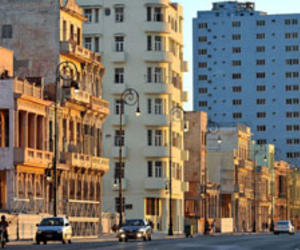LONDON/UK/Oct. 26: Cuba Research Seminars
- Submitted by: manso
- Society
- 10 / 22 / 2010

Dear subscriber, You are invited to attend the following Research Seminar co-hosted by the Centre for Transcultural Research and the Centre for Caribbean and Latin American Research and Consultancy: Tuesday 26th October 2010, Tower Building, London Metropolitan University, Room T1.20 (Old Staff Café)166-220 Holloway Road, London, N7 7DB, 6.00 7.30pm with drinks afterwards
SPEAKERS:
Emily Morris (London Met)
How has Cuba managed without an economic transition?
Cuba was almost alone, among the former Soviet bloc countries, in rejecting economic transition. For that reason its economy was widely expected to collapse. However, after a recession in 1990-93 it made a remarkable recovery. This was achieved thanks to the restructuring of the economy and a unique approach to policymaking. The Cuban experience provides interesting lessons for economists on the process of economic transformation. Nonetheless, the legacy of a dual monetary system leaves major challenges ahead.
Stephen Wilkinson (London Met)
The strange incident of the Bahamas raids: the "special relationship" in action over Cuba 1962-1963
In early 1963 British Bahamian cays off the north coast of Cuba began to be used by Cuban exiles for illicit raids on Soviet shipping. The incidents endangered the fragile settlement of the Cuban Missile Crisis and President John F. Kennedy, therefore encouraged the British to stop the raids. This paper examines the records held in the National Archive and argues that the evidence supports the theory that the exiles might have been responsible for the President's death.
María Encarnación López (London Met)
'Reinaldo Arenas: visible invisibility in exile'
The talk will address the dualism between "visibility" and "invisibility" in Cuban Reinaldo Arena's writing produced during his exile (1980-1990). It will be based on Arenas' unpublished correspondence, articles and interviews that are compiled in the Archive of Rare Books and Special Collections in the Firestone Library at Princeton University.
Please contact:
Klaus Fischer- k.fischer@... or
Marcella de Marco- m.demarco@...
If you wish to attend.
Dr Stephen Wilkinson
Director,
Centre for Caribbean and Latin American Research and Consultancy,
31 Jewry Street,
London
EC3N 2EY
+44 (0)20 7320 3060
+44 (0)7956 381640
Source. http://groups.yahoo.com/group/CubaNews/message/118604
Comments